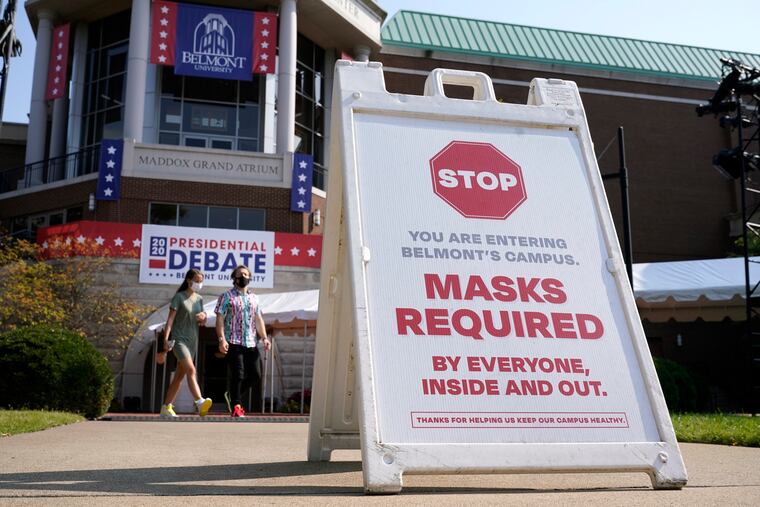CDC declares masks also protect wearers from COVID-19, joining scientific consensus
Even if you don’t care about other people, protect yourself. Wear a mask.

The U.S. Centers for Disease Control and Prevention now says masks, even cloth ones, protect wearers from catching, as well as spreading, the coronavirus.
Yes, this is the same national health agency that initially said masks do not safeguard the general public and are needed only by health-care workers. It is the same agency that, a few months later, said a mask won’t protect the wearer from inhaling the virus — but you should wear one anyway to protect other people in case you’re infected but don’t know it.
On Tuesday, the CDC caught up with the mounting science that shows masks do indeed protect wearers by filtering out any incoming airborne droplets.
Equally significant, the agency endorsed a policy that has been highly politicized in the United States: “universal masking."
“Adopting universal masking policies can help avert future lockdowns, especially if combined with other non-pharmaceutical interventions such as social distancing, hand hygiene, and adequate ventilation,” the CDC said.
An analysis cited by the CDC found a 15% increase in universal masking could prevent economic losses of up to $1 trillion.
The new advice is not likely to sway anti-maskers, who quickly took to social media to express disapproval.
Others found the evolution of the CDC’s guidance to be suspiciously timed, coming just days after President-elect Joe Biden, a mask proponent, prevailed over President Donald Trump, who mocks mask-wearers including Biden.
To be sure, scientific understanding of the novel coronavirus and how it spreads was basically nonexistent at the beginning of the pandemic, so experts had little information on which to base public health recommendations.
But that didn’t stop them from making strong statements, like U.S. Surgeon General Jerome Adams' now-infamous tweet in February: “Seriously people – STOP BUYING MASKS! They are NOT effective in preventing general public from catching coronavirus, but if healthcare providers can’t get them to care for sick patients, it puts them and our communities at risk!”
» READ MORE: Airborne coronavirus transmission raises new questions and worries
Health-care workers usually wear the N95 mask, so-called because it is designed to filter out 95% of microscopic airborne particles.
But circumstantial evidence and laboratory studies over the last six months have demonstrated the benefits of wearing less sophisticated surgical masks and cloth masks in public. In early August, for example, researchers posted a “preprint” study (not yet reviewed by experts) of 200 countries that found masks reduce COVID-19 deaths. “Government policies supporting the wearing of masks by the public ... are independently associated with lower mortality from COVID-19,” they wrote.
Another preprint study — repeatedly updated since it was first posted in April — reviewed all existing evidence and concluded, “We recommend that public officials strongly encourage the use of face masks in public, including the use of appropriate regulation.”
Jeremy Howard, a researcher at the University of San Francisco in California who led the review, told the journal Nature, "You don’t have to do much math to say this is obviously a good idea.”